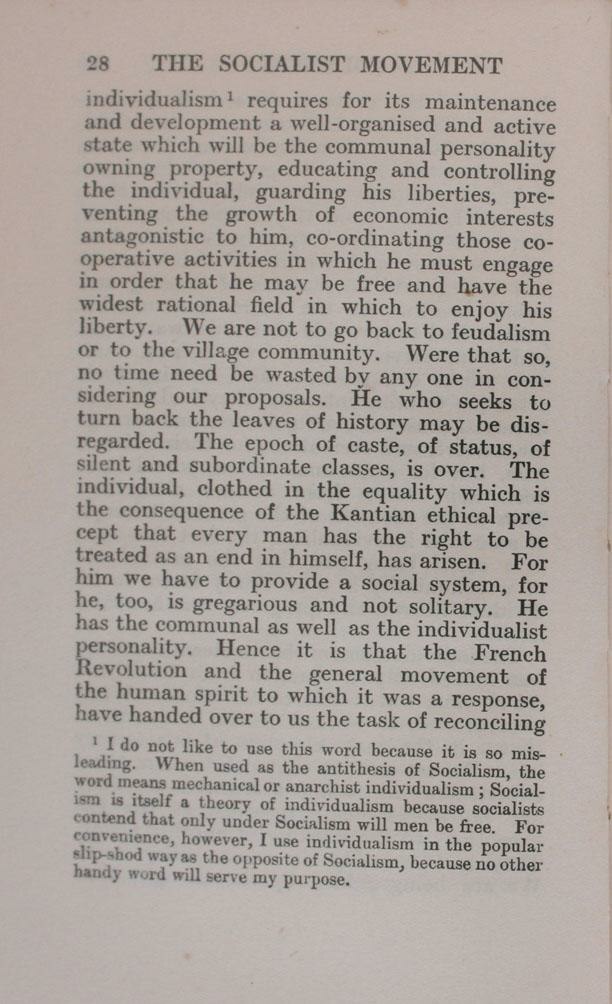individualism[1] requires for its maintenance and development a well-organised and active state which will be the communal personality owning property, educating and controlling the individual, guarding his liberties, preventing the growth of economic interests antagonistic to him, co-ordinating those co-operative activities in which he must engage in order that he may be free and have the widest rational field in which to enjoy his liberty. We are not to go back to feudalism or to the village community. Were that so, no time need be wasted by any one in considering our proposals. He who seeks to turn back the leaves of history may be disregarded. The epoch of caste, of status, of silent and subordinate classes, is over. The individual, clothed in the equality which is the consequence of the Kantian ethical precept that every man has the right to be treated as an end in himself, has arisen. For him we have to provide a social system, for he, too, is gregarious and not solitary. He has the communal as well as the individualist personality. Hence it is that the French Revolution and the general movement of the human spirit to which it was a response, have handed over to us the task of reconciling
- ↑ I do not like to use this word because it is so misleading. When used as the antithesis of Socialism, the word means mechanical or anarchist individualism; Socialism is itself a theory of individualism because socialists contend that only under Socialism will men be free. For convenience, however, I use individualism in the popular slip-shod way as the opposite of Socialism, because no other handy word will serve my purpose.
